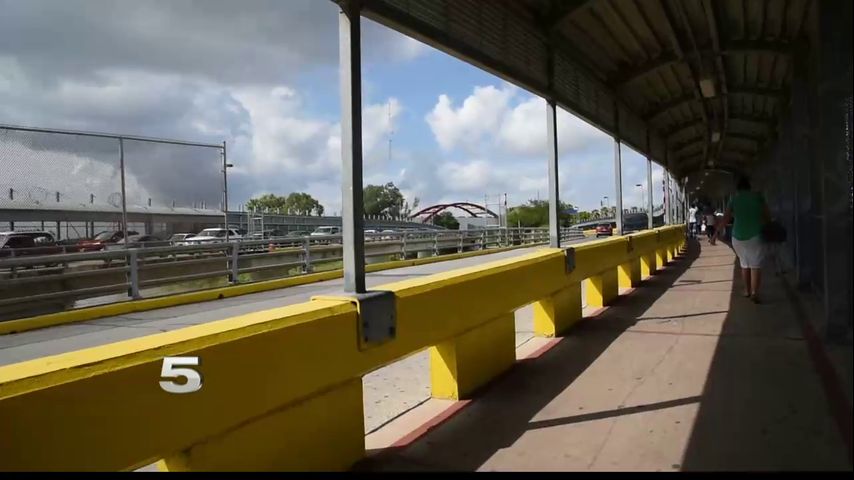Pilot Program Aiming to Find Attorneys for MPP Migrants
BROWNSVILLE - Asylum seekers sent to Matamoros under the Migrant Protection Protocol (MPP), or 'Remain in Mexico', are struggling to find legal representation.
There are new efforts underway to help connect them with attorneys; that can drastically affect the outcome of their case.
In 2017, about 90% of asylum seekers without an attorney had their cases denied.
The denial rate decreased to 54% for those who had an attorney, according to Transactional Records Access Clearinghouse data.
"It is utterly heartbreaking the lack of ability to get lawyers to be able to go to Matamoros to be able to represent people who are in MPP," says Jodi Goodwin an immigration attorney heading a pilot program in Matamoros.
On a weekend morning, a volunteer meets at a Brownsville bus station blocks away from the Gateway International Bridge.
Volunteers are getting a crash course on how to help migrants sent back to Mexico under MPP.
Thousands wait across the border while their immigration court hearing on the U.S. comes up. Then they'll come back that day and present themselves before a judge.
Goodwin explains the process they're likely to face if they don't have an attorney.
"You go to your first hearing, and your judge explains your rights to you. And then the judge says, 'do you want time to find a lawyer? Okay. I'll give you time to find a lawyer and reschedule your case for three more months,'" says Goodwin.
The process can become protracted if migrants are not prepared.
An attorney can help with that, but those attorneys are on the U.S. side and migrants are on Mexican territory.
That's why at least once a month, Goodwin and a group of volunteers walk across Gateway International Bridge into Matamoros, Tamaulipas.
They offer workshops to asylum seekers; recently, they started a pilot program specifically for those under MPP.
Goodwin explains it's a four-segment workshop. "So, what we're doing is going through very detailed explanation of your rights and proceedings, very detailed explanation of how does one actually answer the charges of deportation that the government has put against them, and then also to helping them fill out their information on their form for applying for asylum, and then working with them to be able to gather documents."
Through this process they aim to cut down up to six months in each case.
It's an ambitious goal for the small group seeking to expand.
Attorneys considering joining have concerns.
Karla Vargas, an immigration attorney for the Texas Civil Rights Project says, "Dealing not only with the Mexican government, potentially, giving pushback to American attorneys going into Mexico to provide legal advice, but also the basic safety concerns of cartel violence along the border."
She recently joined the volunteer group and knows their visit is physically restricted to the bridge property.
Attorneys also have to consider costs; legal fees vary by attorney and experience.
Goodwin has been practicing for 24 years.
She explains, "My regular hourly rate is $300.00 an hour. If we translated that into dollars, every time I go to Matamoros I'm giving away $1200.00 minimum worth of work."
Adding the subsequent paperwork, data entry, calls, and messages Goodwin's pro-bono hours average out to about 20 hours a week.
The volunteers are helping each migrant fill out a form.
With their permission, those forms are then shared with a network of attorneys who can consider taking up their case.
So far 30,000 migrants have been sent back to Mexico throughout the southwest border.
TRAC reports, "According to the latest court records available, as of the end of June 2019, a total of 1,155 MPP cases had already been decided. Yet only 14 of these—just 1.2 percent—were represented."





